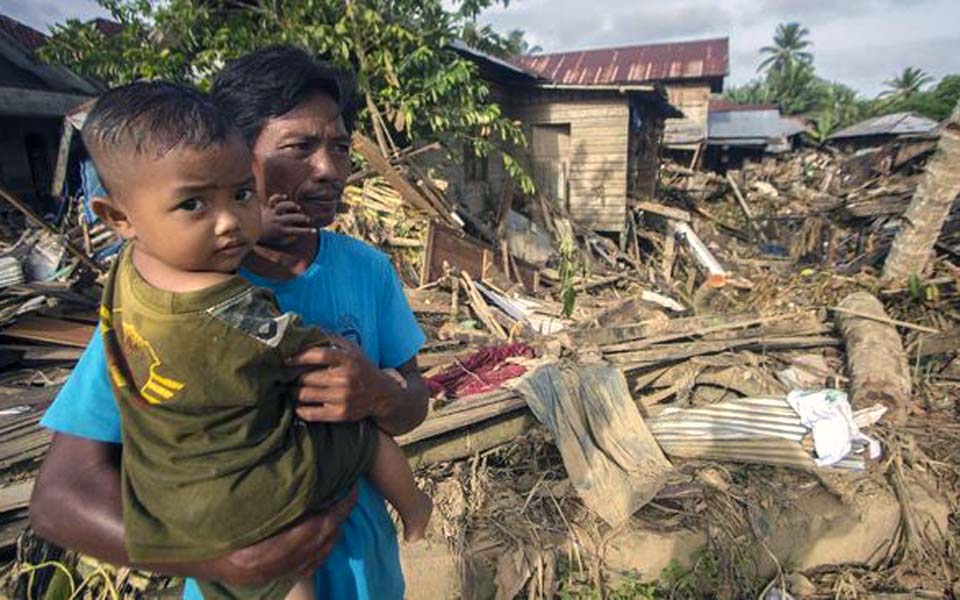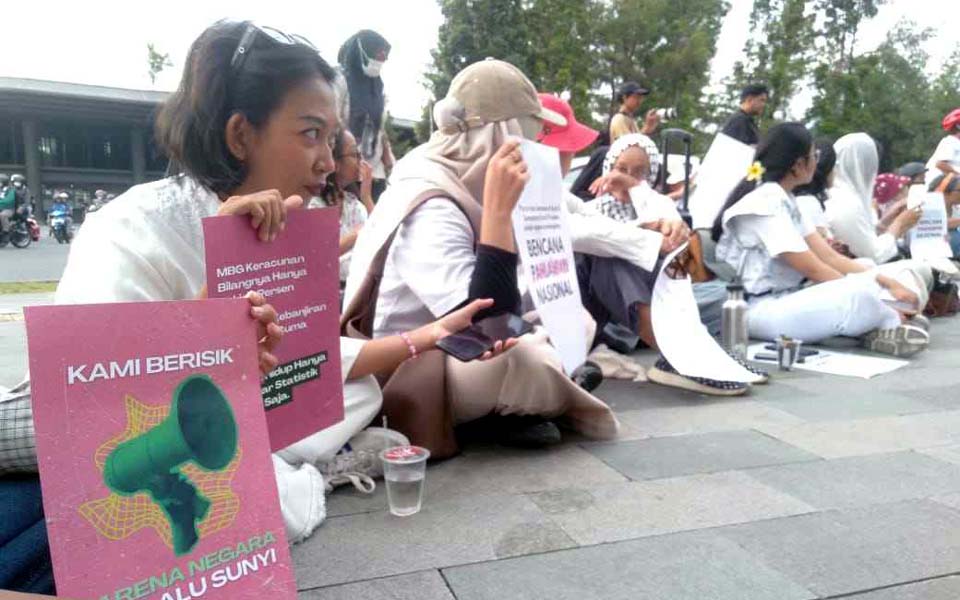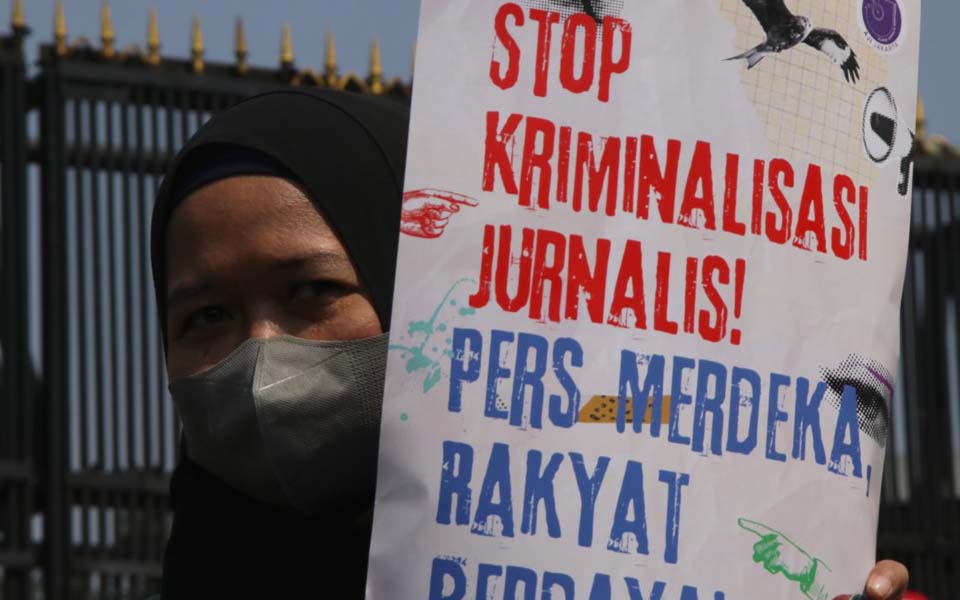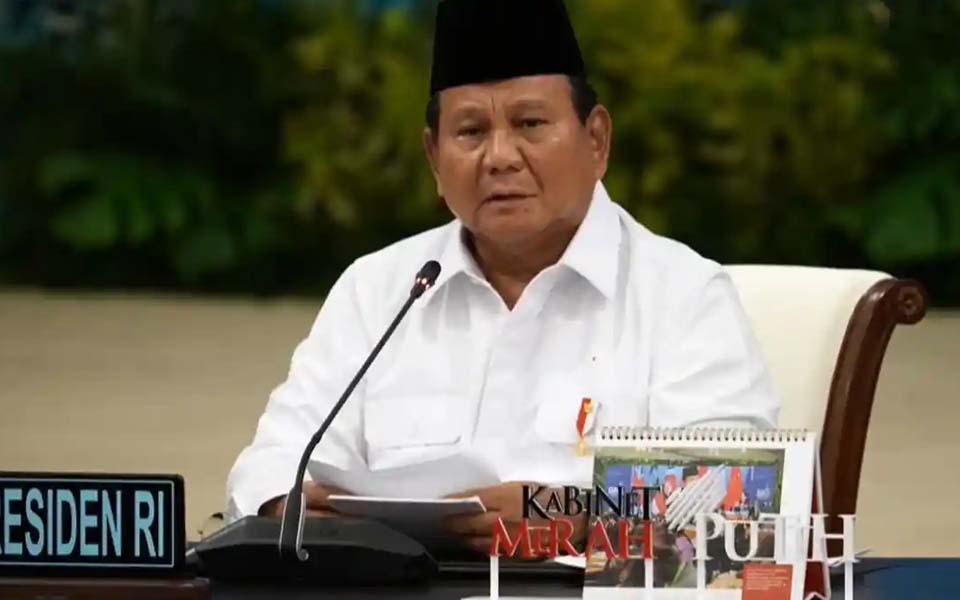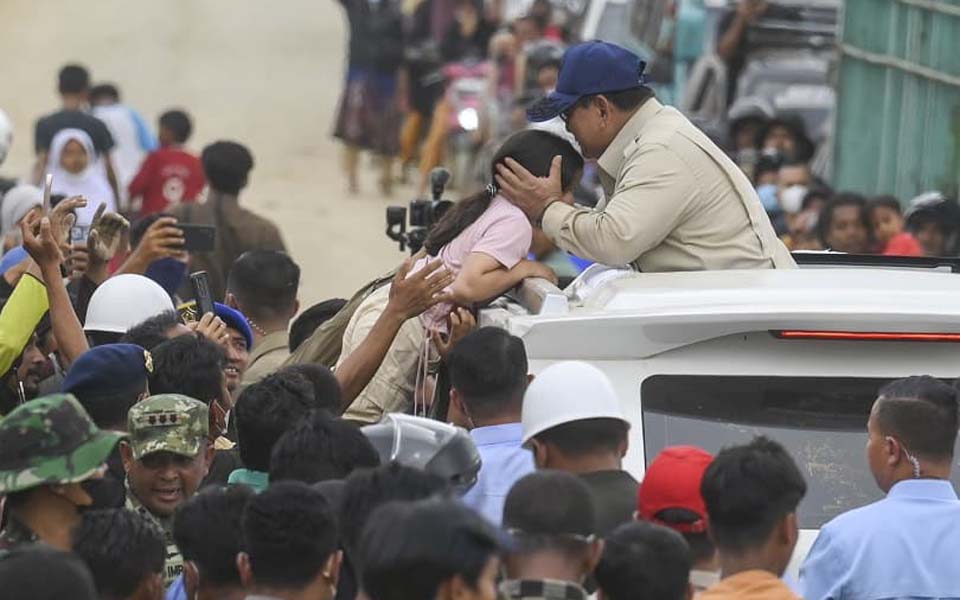Jakarta – The Indonesian Forum for the Environment (Walhi) has accused sections of the oligarchy in government circles of being one of the causes of the series of natural disasters that have occurred around the country over the last few weeks.
Walhi National Executive Director Nur Hidayati says that the natural disasters can be classified into two groups, namely disasters caused by Indonesia's position located on three large tectonic plates and ecological disasters.
According to Hidayati, ecological disasters such as floods, landslides, forest fires and droughts can be prevented by protecting the environment and natural resources.
Quoting from National Disaster Management Agency (BNPB) data, between January 1 and December 3, 2020, floods were the most common disaster, with a total of 969 cases. This was followed by whirlwinds with 809 cases, landslides with 514 cases and forest fires with 325 cases.
"Since the New Order era [of former President Suharto] until today, we have witnessed how our natural resources have been managed unjustly. Although the constitution states that natural resources are to be used bring the greatest possible prosperity to the ordinary people", said Hidayati in a live broadcast on the Clean Indonesia (Bersihkan Indonesia) YouTube account on Friday January 29.
According to Walhi's records for 2918, at least 103.4 million hectares of land area in Indonesia are subject to business permits, from the forestry sector, plantations, mineral and coal mining to oil and gas industries.
In 2019, the Agricultural Ministry determined that palm oil plantations covered 16 million hectares of land in the country. Hidayati said that this is equivalent to 1.2 times the size of Java island. And this does not include palm oil plantations which have been established illegally.
Hidayati highlighted the close relationship between the government and business tycoons. He quoted from a Tempo study which revealed that 45.5 percent or 262 members of the House of Representatives (DPR) are affiliated with some 1,016 companies.
According to Hidayati based on the permits which have been issued, 60 percent of Indonesia's land area has already been allocated to corporations.
Pointing to this data, he admitted he is not surprised at the number of pieces of controversial legislation that allegedly benefit corporations, such as the Job Creation Law and the Mineral and Coal Mining Law, which have been passed by parliament.
"This situation is interconnected, the oligarchy is married to the economic and political elite", he said.
Meanwhile legislation which promotes the extractive industries such as deforestation and destruction of peatlands, continued Hidayati, plays a big role in contributing to greenhouse gas emissions which worsen the climate crisis.
"So currently we're in a vicious circle. Because the impact of climate change is extreme weather, heavy rainfall, whirlwinds. But we're not conscious of this and continue to exploit [natural resources]. But it's like we're digging our own grave", he said.
The head of the Indonesian Legal Aid Foundation's (YLBHI) information management division, Siti Rahma Mary, said that the state is obliged to ensure the right of every citizen to live in a safe and healthy environment. This is mandated under Article 28H Paragraph (1) of the 1945 Constitution.
Meanwhile the current situation, according to Hidayati, is not in accordance with this mandate. Mary has recorded that just in the first 23 days of this month, 1.9 million people have been displaced as a consequence of disasters caused by ecological damage.
Mary found that there were a total of 197 disasters which occurred over this period with 134 floods, 31 landslides and 24 whirlwinds.
At least 184 people have died during the series of disasters, 2,700 have been injured and nine people declared missing. The floods in South Kalimantan are one of the disasters which have received most attention.
According to Mary, the Meteorology, Climatology and Geophysics Agency (BMKG) had already predicted that there would be extreme wealthier during the peak of the wet season in January and February. Yet, said Mary, the government did not maximise efforts to anticipate this and the environmental problems were ignored.
"Disregarding environmental damage which results in the death of ordinary people is clearly a violation of the right to life, the right to safeguard life, which was violated by the government", she said.
Earlier, President Joko "Jokowi" Widodo and officials from the Environment and Forestry Ministry (KLHK) claimed that the loss of forest cover was not the principle factor behind the South Kalimantan floods, rather it was because of extreme weather.
Activists and experts however have all asserted that extreme weather is part of the climate crisis which is also triggered by deforestation. Kalimantan is one of the biggest contributors to deforestation in Indonesia.
The KLHK itself has recorded a decline in forest cover over the last decade in Kalimantan. In 1990 there were 35 million hectares of forest cover which had declined to 25 million hectares in 2019. (fey/fra)
[Translated by James Balowski. The original title of the article was "Walhi Tuding Oligarki Penyebab Rentetan Bencana di Indonesia".]





